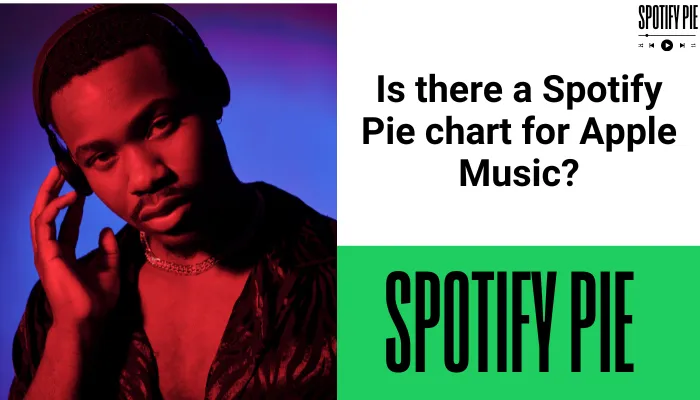Is there a Spotify Pie chart for Apple Music? Spotify dominates the ever-changing music streaming industry. Playlists, which are key to introducing audiences to new sounds and promoting artists, rule within this digital kingdom.
But, a cloud of controversy hangs over the system – the allegation of payment for playlist placement. This article looks at Spotify’s playlists, discusses the accusations of payola, and separates myth from truth.

Decoding the Power of Playlists
A Spotify playlist is like a well-organized record shop filled with personal picks. Such anthologies carry immense weight in relation to discovering music. Playlists come in two major forms in Spotify:
- User-Generated Playlists: These make up most part of a music-sharing platform as millions of users have created lists categorized by genre mood activity or even a certain occasion thus allowing people to discover what their peers listen to.
- Editorial Playlists: Spotify’s editorial team consists of experienced music professionals who curate numerous official playlists. They address different tastes and demographics offering curated listening experiences and serving as platforms for breaking acts.
The power that these playlists hold is impossible to ignore. They open up doors for millions into new music; they shape artists’ careers while determining how one listens to music.
Therefore, getting onto some prominent playlist may expose an artiste to a large audience thereby increasing his/her streams or fans and possibly giving him/her some industry accolades.
Algorithms and Editorial Decisions
However, how do these songs get there? It’s all dependent on algorithms’ complex interplay with the editorial choices at hand.
The Algorithmic Influence: Spotify’s intricate algorithms offer great assistance in building playlists. It takes into consideration user habits such as individual favorite genres or musicians listened most frequently among others plus times when someone is actively engaged in listening; hence facilitating algorithmic recommendations which personalize each playlist with an individual bias towards particular artists.
The Editorial Eye: Despite the power of algorithms, Spotify’s editorial team remains a vital force. The official playlists are put together by curators who have an in-depth understanding of musical genres and fan interests. This adds a human touch to quality control and allows for the inclusion of new talents with fewer followers.
It therefore becomes clearer that placement is at stake when we learn how playlists are curated. Consequently, there has been a desire among artists and labels to fight for a slot leading to questions about payola – paying for playlist placement which can be seen as unethical.
The Payment for Placement Controversy
Spotify has had rumors about payment for playlisting abound forever. Here is an insight into these allegations:
- The Allegations: Critics argue that some artists or labels resort to paying curators or playlist owners to secure a spot on a popular playlist, regardless of the song’s merit. This practice undermines the integrity of playlist curation and could stifle the discovery of genuine talent.
- Evidence for and Against. There is little hard evidence of widespread payola on Spotify. Despite the platform’s strict terms of service which prohibit such actions, cases of playlist manipulation are often addressed with immediate effect. However, high numbers of streams on specific playlists or sudden spikes in popularity among less-known musicians have been linked to possible payola.
Spotify’s playlisting system serves as an effective tool within music discovery and artist promotion spaces.
How Streaming Services Affect Artists and the Music Business?
The way we listen to music has changed dramatically with the advent of music streaming services. Spotify and other platforms have given us access to a vast collection of songs, ready-made playlists for every mood, and the ability to listen to anything you want whenever you want it.
However, behind its shiny screens, there is complex terrain for artists to navigate. Artists today are faced with a major issue called playlist payola where they pay curators in order for their songs to be featured on popular playlists.
Transparency and Payments
Payola is not accepted at Spotify which is the leading streaming platform globally. Their terms of service state that manipulating playlist placement through payment or any inducement is against their rules.
To many critics however, this method does not guarantee fairness since it does not disclose how official playlists are created. Artists cannot know how to make their music get onto them because algorithms used in selecting songs for official lists remain undisclosed.
Criticisms: Other musicians and industry insiders believe that the current system employed by Spotify leads to an unfair playing ground. With more emphasis put on influential curators, those with huge following may be tempted into prioritizing songs from artists who can afford it regardless of quality content.
Alternatives to Payola
There are many ways artists can try to optimize their chances of getting onto popular playlists organically. Things such as optimizing your song’s metadata, pre-save campaigns, and engaging with your fans on Spotify can all help in building credibility around an artist’s profile.
- Fanbase Building: In order to build a loyal fanbase who interacts actively with your music through streaming it, you must create a strong community by being responsive to social media followers’ comments or even collaborating with other musicians in the same genre or style. A dedicated fanbase sends a powerful message to curators, showcasing your potential to connect with a wider audience.
- Independent Curators & Services: Various platforms link artists with independent curators who focus on crafting niche playlists. Often, these curators prioritize the quality of music and some offer promotion services that can help your music reach particular listeners. However, it is important to choose reputable services that avoid any pay-to-play tactics.
Conclusion
However, to conclude “Is there a Spotify Pie chart for Apple Music?” the debate around playlist payola is a complex one. While streaming platforms like Spotify provide a good platform for music discovery, this becomes difficult due to a lack of transparency and potential payola.
Henceforth, it is imperative for streaming services to put in place more transparent playlist curation processes. Besides that, together artists and fans could build a fairer music ecosystem based on artistic merit rather than financial interests.
By joining hands, we will ensure that artistic talent and genuine relationships between creators and their audiences are what drive musical exploration instead of money-driven approaches.
